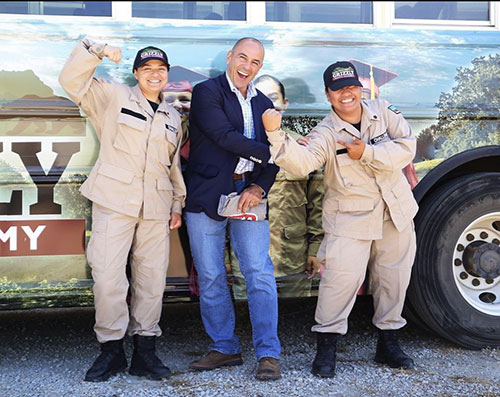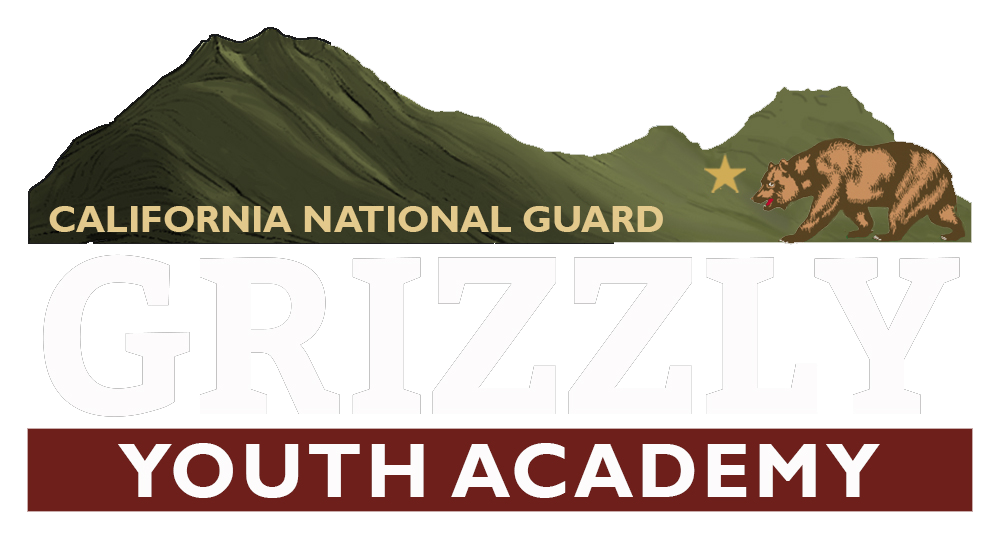Mentoring …The Core of ChalleNGe

Matching cadets with a caring, responsible mentor is one of the most important components of the Grizzly Youth Academy experience. The mentor acts as an anchor of support to the cadet during their 5 ½ month residential phase and continues supporting him/her throughout their 12 month post-residential phase (a total of 17 ½ months).
Importance of Mentoring
- The mentor is key to a graduate’s successful transition to employment and/or continuing education. An established goal for all students is to complete a My Action Plan (MAP). This life plan is a guide for the Mentor and the Cadet to follow after graduation.
- Mentoring responsibilities are fully communicated in the mandatory one-day Mentor Training session (see dates below). The Grizzly Youth Academy offers this training multiple times each class, only requiring mentors to attend ONE session.
- Not only is mentoring important for the development of these young men and women, but the academy is required by the National Guard Bureau and Congress to report on the progress of cadets during the Post-Residential Phase.
- This progress is documented by mentors in mandatory monthly reports submitted to the academy. See: Mentor Report
Mentors Make a Difference
Find out how mentoring supports the goals of ChalleNGe through the real-life stories of cadets experiencing the program, staff supporting the cadets, and experts in the field of mentoring.
Mentoring Details
- Mentors must attend a one-day training session at GYA. Once training is complete, mentors will be officially matched with their cadet in a ceremony. Cadets will participate in Mentee training for six weeks prior to the mentor training session and matching ceremony.
- After matching, cadets and mentors will be able to start building their relationship with phone calls, letters, and mentor visits to GYA on specified days. Visits are not mandatory, but strongly encouraged.
- Upon completion of the 5 ½ month Residential Phase, graduates return to their home communities and enter the 12 month Post-Residential Phase. During this year, GYA case managers and specially trained community mentors assist cadets to put their goals into action.
- The mentor SHOULD be: 25 years or older; employed, in school, or retired; a good role model; same gender as cadet; living within 50 miles of cadet (ideally).
- The mentor may NOT be: living in the same house as the cadet; the parent of the cadet’s boyfriend or girlfriend; the boyfriend or girlfriend; the ex-spouse of the cadet’s parent; a very close relative where family dynamics may interfere with the relationship.
Mentor Must Be Willing To
- Agree to a criminal background check
- Attend one Mentor Day Training to be held at GYA (must have proof of auto insurance and current driver’s license)
- Make weekly contact by phone, mail or email with Cadet after being trained while Cadet is at GYA
- Make weekly contact with Cadet face-to-face, or by phone, mail, email, social media, or text for 12 months after they complete the Residential portion of the program
- Mail or e-mail (may also be completed online) a monthly report to GYA on the progress of Cadet. See: Mentor Report
How to Apply
To apply, please download, complete, and submit a Mentor Application form. You will also need to attend a mentor training session. See the Mentor Application page for more information.

